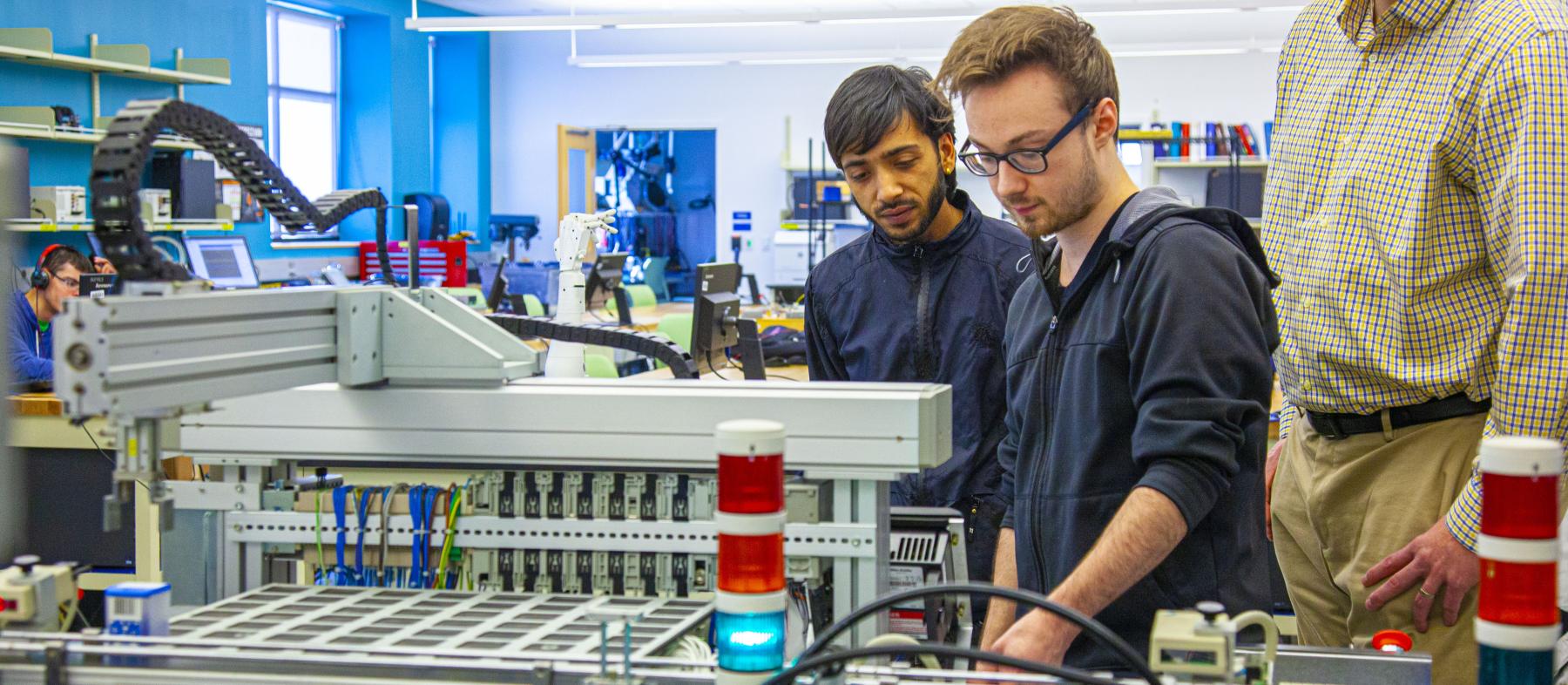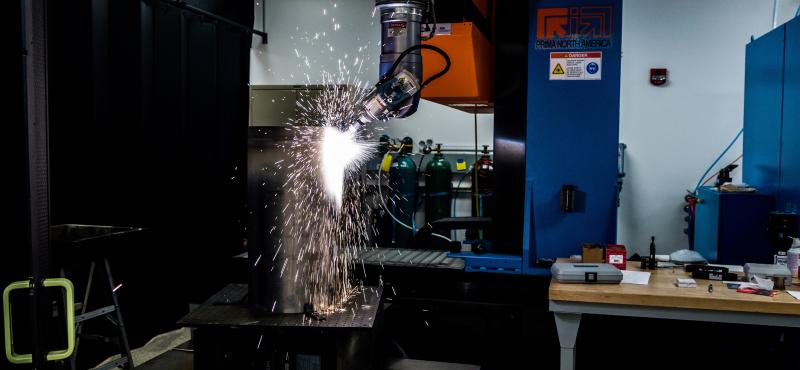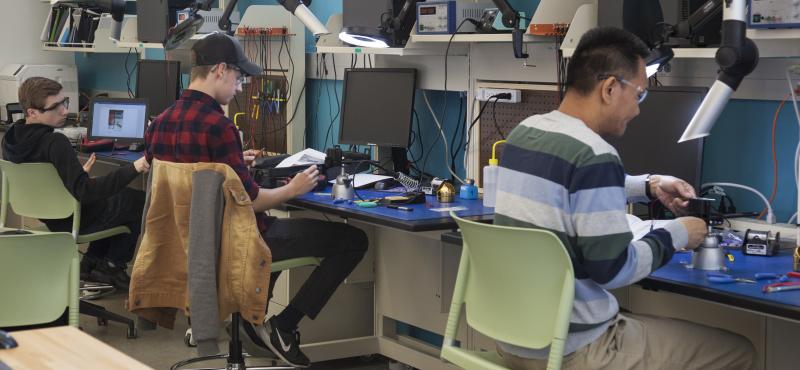Program Goals:
The goal of the Electronics Engineering Technology - Mechatronics Option is to prepare students for careers as mechatronics technicians. Mechatronics technicians install, maintain, troubleshoot, and repair a wide range of computer-driven automated equipment and/or robotic systems. They must understand basic electronics, mechanics, computer interfacing, and software. These skills are vital to the success of advanced manufacturing.
Student Learning Outcomes:
Upon completion of the program, graduates will be able to:
- Given schematics, wiring diagrams, mechanical drawings, and/or instructions, build and test electronic and electronically-controlled systems.
- Use multimeters, oscilloscopes, power supplies, and function generators to analyze and troubleshoot circuits.
- Apply the concepts and methods of mathematics to the solution of technical problems.
- Assemble electronic systems using proper soldering and wiring techniques.
- Communicate effectively verbally and in writing.
- Write technical reports using a word processor.
- Collect, sort, and analyze data using a spreadsheet.
- Troubleshoot and configure computer networks.
- Work effectively as a member of a team toward the solution of problems.
- Wire, test, and program basic programmable logic controller systems.
- Troubleshoot and repair basic mechatronic systems.
- Program and troubleshoot basic robotic systems.
Admissions Process:
Admissions inquiries should be directed to admissions@qcc.mass.edu. Prospective students may apply to the program of their choice by following the enrollment steps at www.QCC.edu/enrollment-steps.
Program Admissions Requirements:
Students should note that some first semester courses carry minimum prerequisites. Refer to the program grid.
- High School Diploma or GED/HiSET.
CORI, SORI, Finger Printing & Drug Testing:
Criminal Offender Record Information (CORI) and Sex Offender Registry Information (SORI) checks may be required of students enrolled in EET 299. Fingerprinting and drug testing may be required of students enrolled in EET 299.
Additional Cost:
See the Program Fees page.
Technical Performance Standards:
See the Technical Performance Standards page. (Note: Not all programs have technical performance standards).
Credit for Prior Learning:
Credit for Prior Learning (CPL) allows students to use skills they already have towards a college degree or certificate. Work, life, volunteer and military experience may be translated into credit, allowing students to take fewer classes and earn their degree faster. CPL eliminates redundancies for students who have already earned credentials or mastered skills required for their program of study. Email experience@qcc.mass.edu for more information and eligibility.
Career Outlook:
Please consult the Massachusetts Career Information System at https://masscis.intocareers.org/ or the Occupational Outlook Handbook at www.bls.gov/ooh/ for specific occupational information. The CIP code for this program is 15.0303.
Transfer Articulations & Opportunities:
Prospective students may learn more about transfer articulation agreements at www.QCC.edu/agreements. More information regarding transfer opportunities is available at www.QCC.edu/transfer.



